Salina's Cornerstone Classical School focuses on a love of learning, including Latin
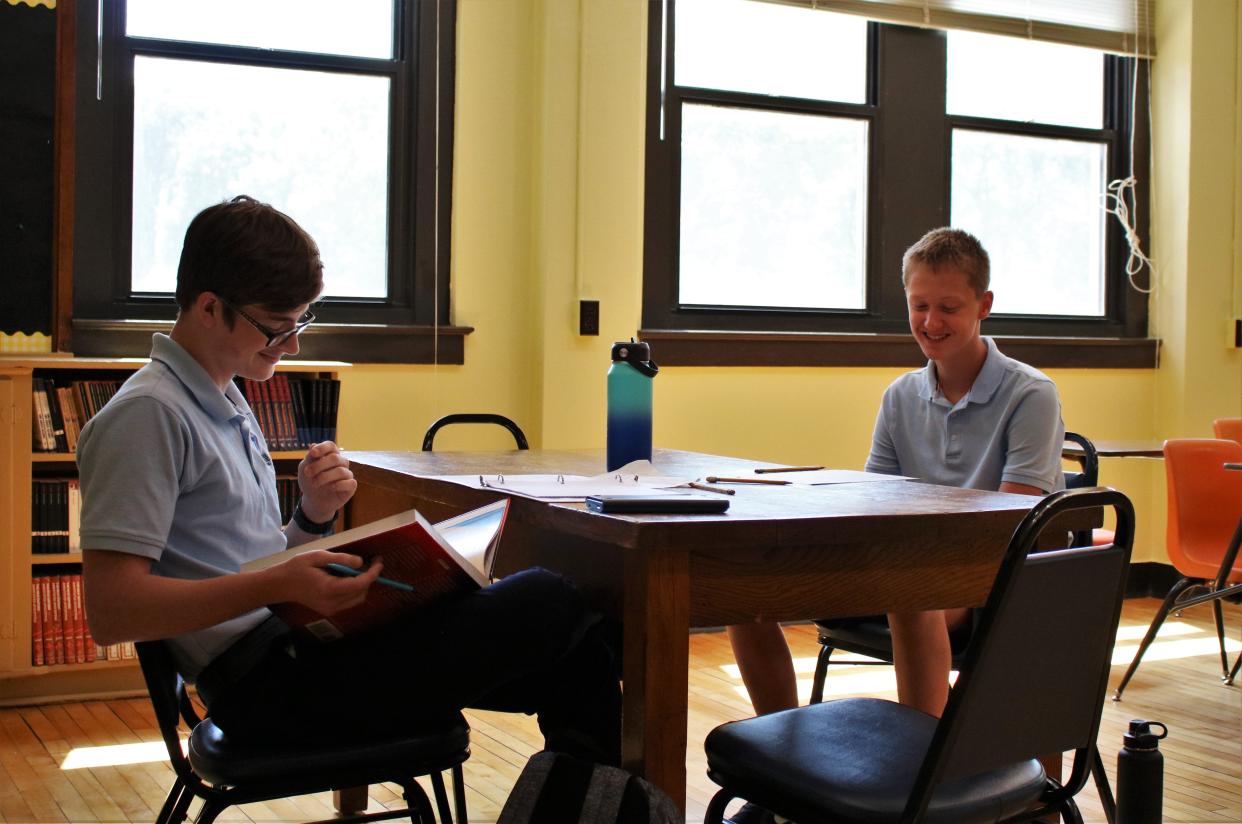
From learning Latin in elementary school, to having hour-long recess, Cornerstone Classical School is not your typical public school – and that’s their point.
This private, Christian pre-school through grade 12 school is housed in an historic two-story building on the corner of Ninth and Franklin streets. Inside, students engage in a curriculum founded on “classical” values, with the purpose of providing a unique experience in today’s culture.
Cornerstone Headmaster Christopher Stevens said the classical approach used in the school is geared toward fostering individuals who have a love for learning.
“We believe that the value in learning is good on its own,” Stevens said. “And building on that, we believe in helping children master themselves with God’s help.”
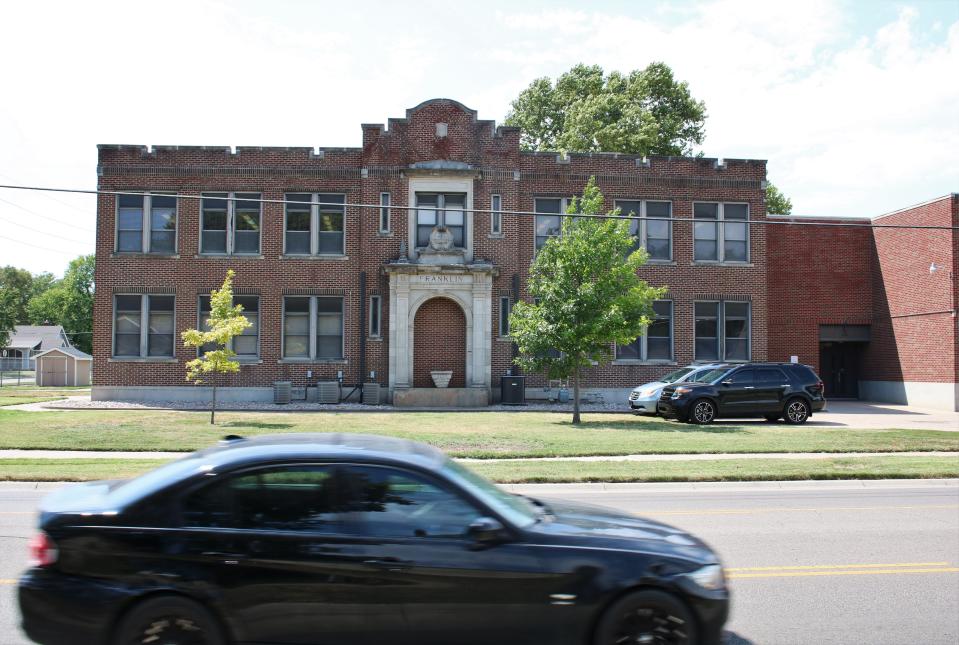
What is classical education?
Anyone in the Salina community can apply for enrollment into the school, but class sizes max out at 15 students. To be admitted, among other criteria, parents must agree to the school’s statement of faith.
The school also supports applicants by providing tuition assistance; nearly 40% of the school’s students receive some form of financial aid.
“We don’t want socio-economic status to be a determining factor if a student can attend our school,” Stevens said.
Cornerstone’s curriculum is described as teaching all subjects as parts of an integrated whole with scripture at the center. Beyond the religious component, the classical component is summarized as: encouraging all students to develop a love for learning, providing an orderly atmosphere, and emphasizing grammar, logic and rhetoric in all subjects.
At its core, classical education is made up of three parts: the early years of school are spent absorbing facts and laying foundations for advanced study. In the middle grades, students learn to think through arguments, and in high school years, they learn to express themselves.
“We’re part of a movement, with over 600 schools nationwide, focusing on these things,” Stevens said.
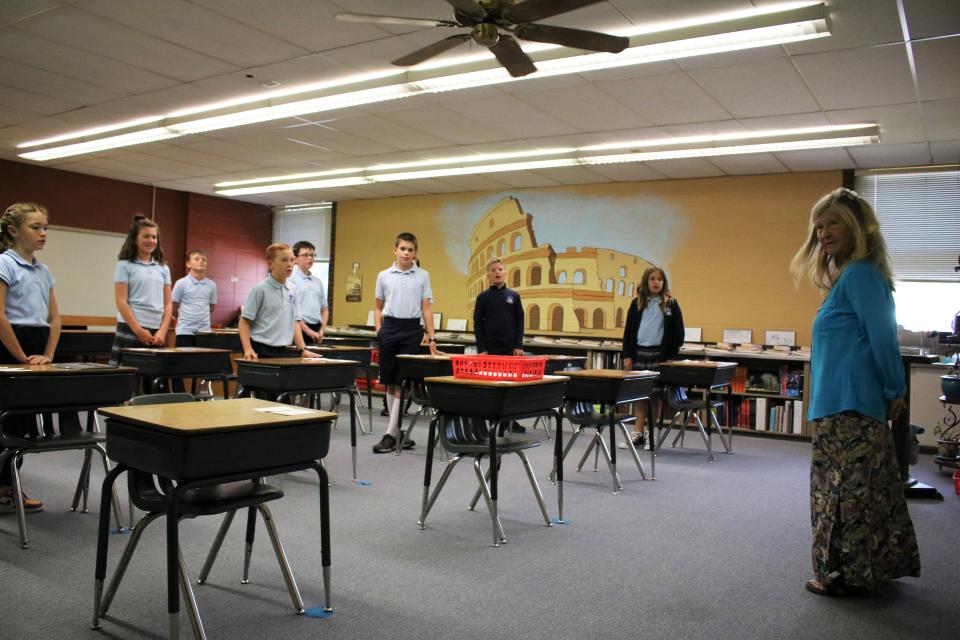
At Cornerstone, elementary aged children focus on grammar, math drills, and memorization of facts and language. This is because people their age are keen to and enjoy the process of memorization, Stevens said.
Because middle schoolers like to argue, Stevens said, this is when students dive into curriculum focused on logic and reasoning. They begin to read a lot, studying classics of western civilization like Marcus Aurelius, Aristotle, Plato and Euripides. They also read through texts from some of the church fathers.
More: How Salina schools are coping with the teacher shortage and what's happening across Kansas
“They write persuasive essays, and they start discussing those texts,” Stevens said. “There’s a lot to argue about (in) those texts – you know, ‘what is justice, is vengeance good or bad, what does it mean to be human.’”
Focusing on these things doesn’t mean grades are limited to one subject, Stevens said, but rather exploring how the concepts are applied to more than just one subject, as part of a whole.
Salvete discipuli
Latin for “hello, students,” salvete discipuli is a common greeting around Cornerstone. When students are greeted in such manner, they stand in respect for who is greeting them.
“You can’t learn if you don’t have respect for the people that came before,” Stevens said. “That’s school tradition.”
All students begin learning Latin in kindergarten as part of the grammar school curriculum. Students begin with a lot of memorization, then graduate on to further levels.
More: Salina's Kansas Wesleyan University announces enrollment boom
Latin I focuses on grammar and translation. Latin II is the same, but with more advanced translation, and Latin III is when classes begin the most advanced reading and translation, translating Caesar’s "Gallic Wars."
Stephen Taylor teaches Latin, Greek, writing and humanities at Cornerstone. He said he enjoys the school’s classical education values and principles.
“I love classical education and teaching the love of learning,” Taylor said. “It is a joy to teach respectful and serious students who love learning.”
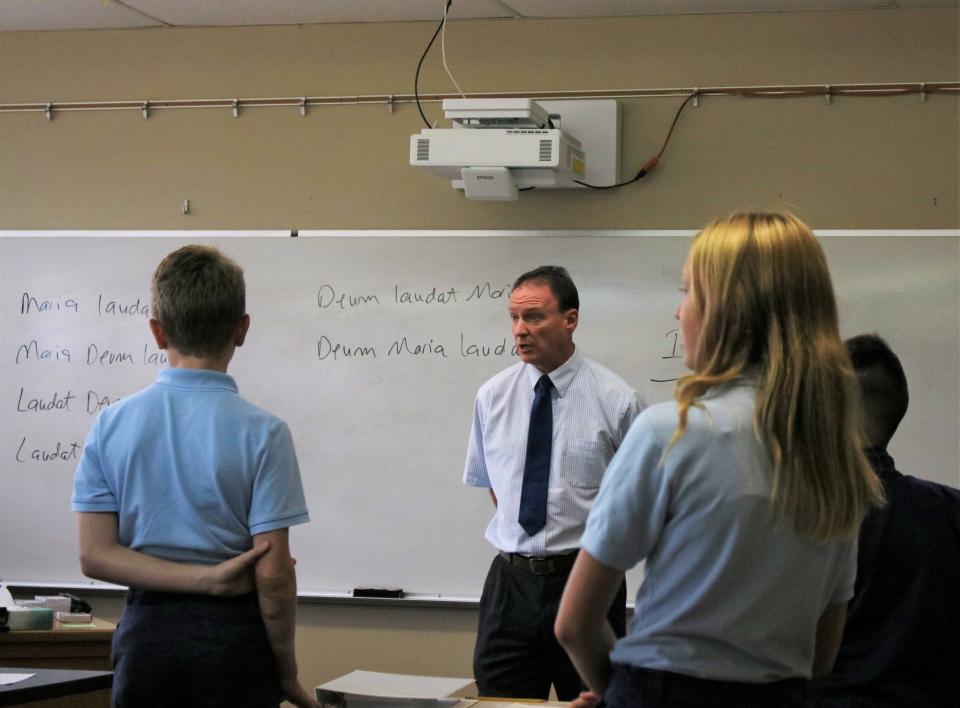
Fifth grade teacher Kaitlin Larson said common values is what sets Cornerstone apart.
“I love teaching at Cornerstone because we focus on both academic excellence and character growth,” Larson said. “The students here are eager to learn and a joy to teach.”
Cornerstone began in 2015 and has grown 10 % every year since. Their high school, better known as “upper school,” has grown some, but stayed relatively small compared to their elementary and middle school grades. However, Cornerstone graduated their first student last year, who is now attending Kansas State University, studying chemical engineering.
More: Salina, school partnership brings visiting Kansas artists to schools
The school gives a long recess — one hour.
“There’s probably not a school in the state that has that much recess,” Stevens said. “That’s important to us – but we give them that because they work hard in the classroom.”
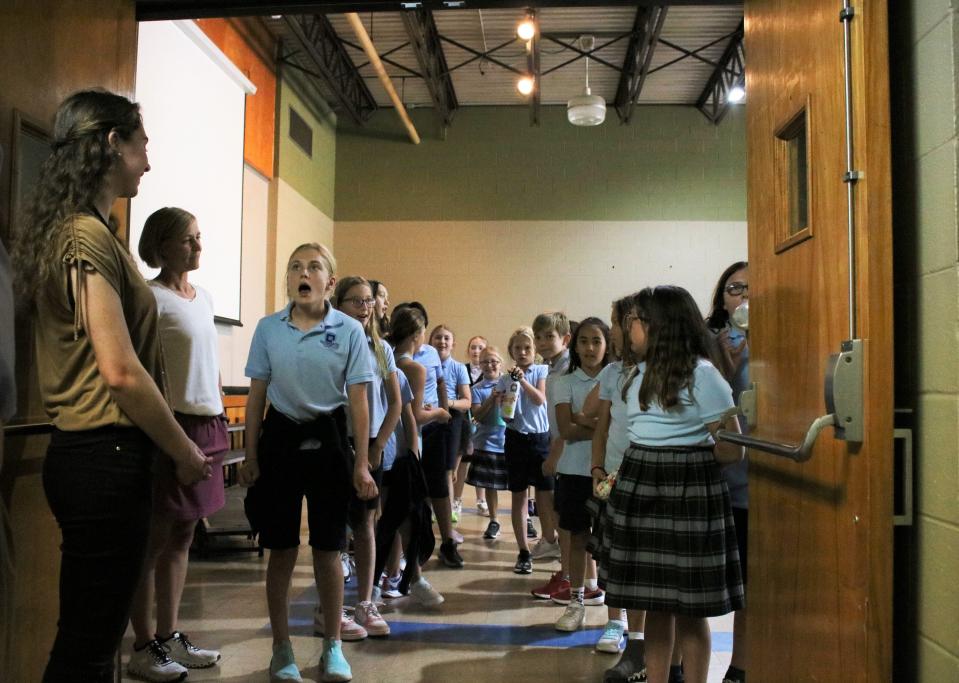
A common vision
Stevens is originally from Pennsylvania, having made his way to Kansas through similar teaching jobs in Maryland, Texas and Arkansas.
He moved to Salina in 2016 for the headmaster position. He said he and his staff follow a Christ centered, academically challenging, rigorous and culturally traditional value system.
“Children have disordered loves, and they love the wrong things – they love them out of order,” Stevens said. “If preschoolers were able to drive and if they had money, they would never make it home for dinner. They would stop at the first thing that smelled or looked good, no matter how bad it was for them.”
“So school is about teaching them to love the right things and to love, for instance, eating at home with family more than eating out – though both are good, both of them are worthy of love – but if we were to get rid of one, we’d say let’s keep the family meal,” Stevens said.
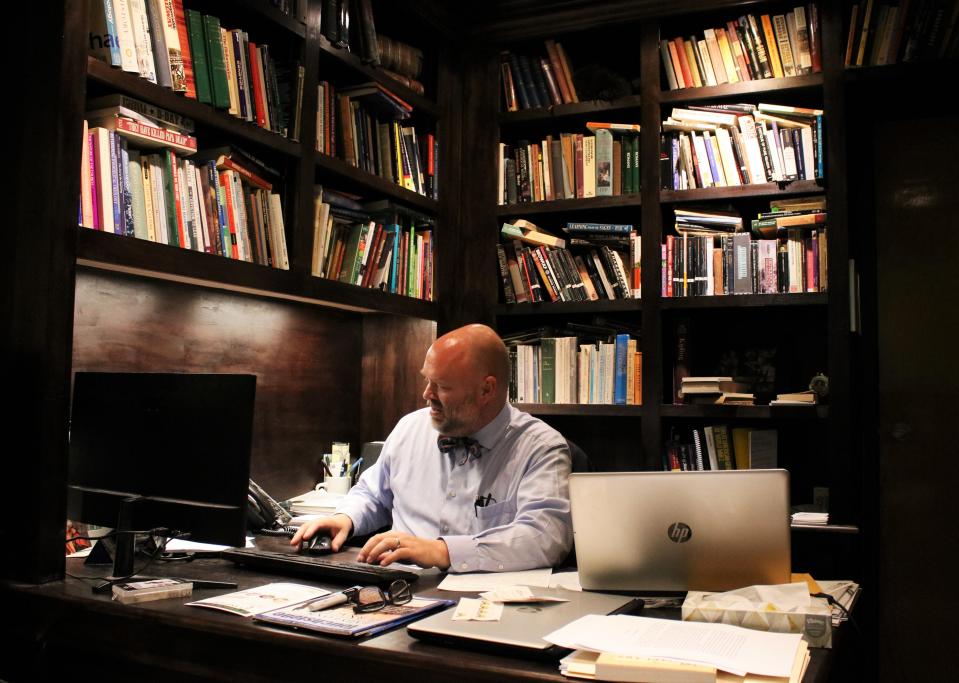
Stevens said he believes school is about teaching children what they should love and what they should not – what is good, true and beautiful – and what is not.
“We try to preserve that – we’re simply passing on what we know that is true and valuable, and those things don’t change over time,” Stevens said.
This article originally appeared on Salina Journal: Salina's Cornerstone Classical School begins new year

